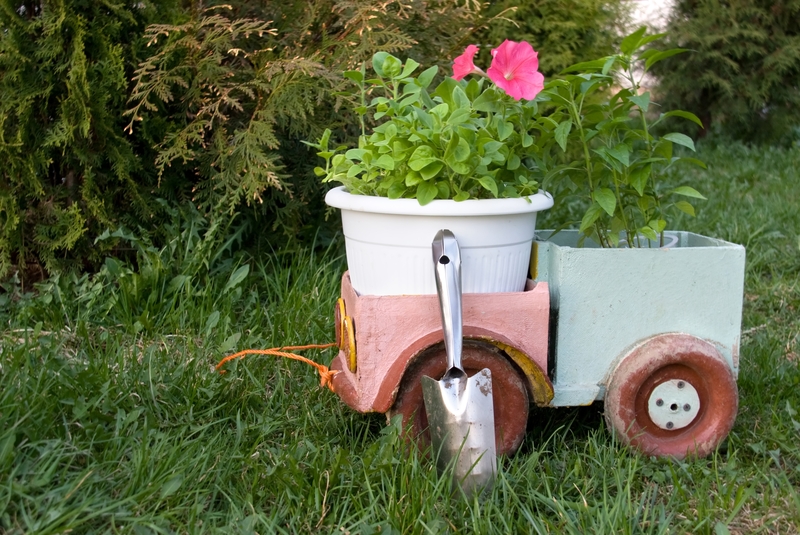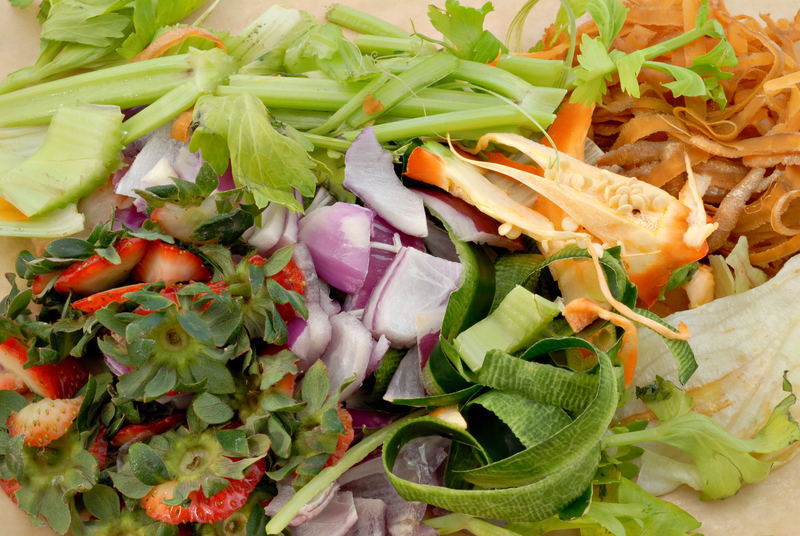Avoiding the Plastic Trap: What to Know
Plastic has become an inseparable part of our daily lives, enveloping us with convenience and accessibility. However, as we move further into the 21st century, the detrimental impacts of plastic are becoming increasingly apparent. From environmental damage to health risks, escaping the plastic trap is a challenge that individuals, businesses, and communities must face together. In this comprehensive guide, we'll delve into everything you need to know about avoiding the plastic trap--from understanding the problem to discovering practical solutions that make a real difference.
Understanding the Plastic Trap: Why It Matters
To truly avoid the plastic trap, it's crucial to first comprehend how deeply plastics have infiltrated our lifestyle. The proliferation of plastic began in the mid-20th century due to its durability, lightweight properties, and versatility. Today, it touches every facet of modern living, from packaging and household items to electronics and clothing. But this convenience comes at a high price.
The Environmental Toll of Plastic
- Non-biodegradability: Most plastics take hundreds to thousands of years to break down, leading to persistent environmental pollution.
- Ocean Pollution: Over eight million tons of plastic waste enter the oceans annually, harming marine life and ecosystems.
- Microplastics: Tiny plastic fragments have been found in water, soil, and even the air we breathe, presenting new health and environmental challenges.
Health Risks Associated With Plastic
- Toxic Additives: Certain plastics leach harmful chemicals like BPA and phthalates, linked to hormone disruption and chronic illnesses.
- Food Contamination: Plastic packaging can transfer chemicals into food and beverages, particularly when heated.
- Bioaccumulation: Microplastics have been detected in human organs and blood, raising questions about long-term health effects.
Escaping the plastic trap is not just an environmental necessity but also a compelling call for better individual and public health.

Common Ways People Get Caught in the Plastic Trap
Understanding the subtle and overt ways in which plastic sneaks into our routines is the first step toward resisting it. Here are some common pitfalls:
- Single-Use Plastics: Bags, straws, bottles, cutlery--these items offer fleeting convenience but lasting impact.
- Hidden Plastics: Clothing fibers, food wrappers, and even tea bags often contain plastic, making them easy to overlook.
- Packaging Overload: Many consumer goods come with excessive and unnecessary plastic packaging.
- Lack of Awareness: Without knowledge of alternatives or consequences, people default to plastic.
Escaping the Plastic Trap: Practical Strategies
Breaking free from plastic dependence may feel overwhelming, but achievable changes can create a significant impact. Let's explore effective strategies to avoid falling into the plastic trap:
1. Substitute with Sustainable Materials
- Reusable Bags: Switch to cloth or jute bags for shopping and groceries.
- Stainless Steel and Glass: Opt for bottles and containers made from glass, metal, or bamboo instead of plastic.
- Compostable Alternatives: Use plates, cutlery, and straws made from cornstarch, sugarcane, or bamboo.
- Natural Fabrics: Choose clothing and textiles made from cotton, linen, or hemp to avoid synthetic microfibers.
2. Mindful Shopping Habits
- Buy in Bulk: Reduce packaging waste by purchasing in bulk or refilling your own containers at zero-waste stores.
- Support Plastic-Free Brands: Embrace companies committed to sustainable packaging and transparent supply chains.
- DIY Products: Make your own cleaning solutions and beauty products to bypass plastic bottles and wrappers.
- Check Labels: Beware of hidden plastics in everyday items such as tea bags, chewing gum, and wet wipes.
3. Rethink Food Choices and Storage
- Reject Single-Use Packaging: Support markets that allow you to use your own containers for meats, cheese, or produce.
- Meal Prep: Preparing meals at home reduces reliance on plastic-laden takeout and processed foods.
- Plastic-Free Storage: Store leftovers in glass jars, stainless steel tiffins, or silicone pouches rather than plastic containers or wraps.
4. Encourage Community and Policy Action
- Advocate for Bans: Support bans or taxes on single-use plastics in your community.
- Participate in Clean-ups: Engage in local efforts to remove plastic from beaches, parks, and waterways.
- Educate Others: Share knowledge and resources with family and friends, amplifying the message.
- Support Legislation: Vote for leaders and policies prioritizing waste reduction and recycling programs.
Understanding Plastic Recycling: Myths and Realities
Recycling is often championed as a solution to the plastic problem, but the reality is more complicated. To effectively avoid the trap of plastic, be aware of these recycling truths:
- Not All Plastics Are Recyclable: Only certain types of plastics (like PET and HDPE) can be recycled in most municipal facilities.
- Downcycling: Plastics are often "downcycled" into items like park benches rather than new bottles or packaging, limiting their reusability.
- Contamination: Food residue and mixed materials can render entire batches unrecyclable.
- Exporting the Problem: Richer countries often export plastic waste to developing nations, contributing to global inequality and pollution.
Key Tip: Recycle what you can, but prioritize reducing and reusing wherever possible.
The Rise of Eco-Friendly Innovations
The battle to avoid plastic traps has given birth to ingenious solutions from both startups and established companies. Here are some notable trends and products reshaping our approach to everyday plastics:
- Bioplastics: Made from plant materials, these offer a renewable alternative to petroleum-based plastics, but require proper industrial composting to break down.
- Edible Packaging: Innovations include packaging made from seaweed, rice, and even dairy proteins that consumers can eat or safely degrade.
- Refill Stations: Providing accessible places for people to refill household goods such as soap and cleaners without extra packaging.
- Reusable Dishes and Cutlery Systems: Some cities and companies offer dish rental or communal washable containers for takeout and events.
Common Obstacles to Avoid
Many people want to break free from the plastic trap but encounter hurdles such as:
- Convenience Culture: The speed and ease of plastic often trump eco-friendly alternatives for busy individuals.
- Product Availability: Not all communities have access to bulk stores or plastic-free goods.
- Greenwashing: Companies sometimes exaggerate eco claims, confusing consumers about what's genuinely sustainable.
- Cost: Sustainable materials or products may initially seem more expensive due to lower economies of scale.
Overcoming These Barriers
- Start Small: Focus first on eliminating the most common plastics from your life--bags, bottles, and wrappers.
- Progress Over Perfection: Even partial changes can accumulate into substantial environmental benefits.
- Join Local Initiatives: Community buying groups or co-ops can help make plastic-free products more accessible and affordable.
- Stay Informed: Use trusted resources and certifications to distinguish genuine sustainable products from greenwashed marketing.
Plastic-Free Habits for Every Lifestyle
Whether at home, work, or on-the-go, thoughtful habits can help you steer clear of unnecessary plastics and build a more sustainable routine.
At Home
- Choose reusable kitchenware instead of disposables.
- Switch to bar soap and shampoo bars to cut down on bottled products.
- Compost organic waste instead of using plastic garbage bags.
- Opt for wooden or metal cleaning tools instead of plastic ones.
On the Go
- Carry a refillable water bottle and coffee cup.
- Keep a reusable cutlery set in your bag.
- BYOB (Bring Your Own Bag) for all shopping trips, big or small.
- Say no to unnecessary plastic items like straws, stirrers, and drink lids.
At Work
- Encourage office policies for reusable dishes and cutlery.
- Advocate for package-free office supplies.
- Host plastic-free meetings or events, using pitchers and glasses instead of bottled water.
Global Movements: The Collective Push to Escape the Plastic Trap
Major organizations, governments, and grassroot movements worldwide are acting to combat plastic pollution. The United Nations has set ambitious targets to eliminate unnecessary single-use plastics, while cities across the globe implement bans and incentives. Here's how you can align with the global mission against the plastic trap:
- Participate in global events: Join International Coastal Cleanup Day or Plastic Free July to contribute to mass efforts.
- Sign Petitions: Support legislative changes encouraging sustainable products and banning problematic plastics.
- Collaborate: Engage with groups like Surfrider Foundation or The Plastic Pollution Coalition to maximize impact.

Long-Term Impact: Why Avoiding the Plastic Trap Matters
Your decision to ditch plastics whenever possible isn't just a personal win--it's a ripple effect. Consider these far-reaching consequences:
- Preserving Ecosystems: Less plastic waste means healthier oceans, forests, and wildlife.
- Safer Food and Water: Lower plastic content in the environment translates to purer food and water sources.
- Driving Industry Change: Consumer demand for plastic-free options pushes companies to innovate and adopt greener practices.
- Empowering Future Generations: Setting examples of responsible consumption fosters sustainability mindsets in children and communities.
Conclusion: Your Role in Avoiding the Plastic Trap
Escaping the plastic trap is an evolving journey that demands awareness, dedication, and creativity. By making conscious choices--swapping disposables for reusables, supporting policy changes, and championing eco-innovations--you can dramatically decrease your plastic footprint. Remember, every small action counts in the collective mission to prevent plastic pollution and nurture a healthier planet for generations to come.
Start your plastic-free journey today, and inspire those around you to break free from the plastic trap for good.